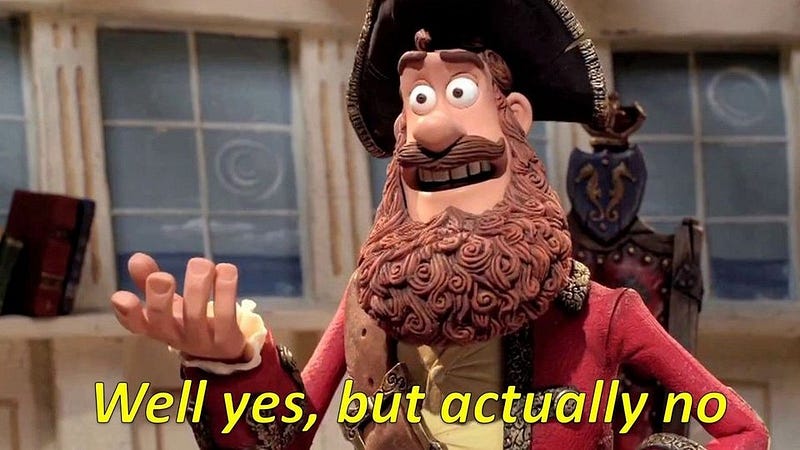
Lately, social media has been saturated with the call to “lock in” — a state of unwavering dedication to one’s pursuits and aspirations.
You have probably come across these tidbits of motivation with captions like:
“How life will look like after you lock in”
“You just need to lock in”
“Life after you locked in”
These posts are usually paired with images that mirror our personal and material aspirations.

The vision painted is simple:
A well-sculpted physique you have always dreamed of.
A sleek Mercedes G Wagon.
Exquisite dining experiences and elevated living.
You get the idea — nurture the necessary skillset and channel hard work consistently on end, and you will be in a better position to succeed in whatever realm you apply yourself to.
These posts aim to kindle motivation in their audience, offering a portal through which we can see how well our lives would be if we locked in.
Serotonin and dopamine flood your system. You get some sense of high as you visualize yourself in these scenarios, motivating yourself that all the good awaits you on the other side.
You like the post.
Probably even share it.
You feel encouraged by the positive visualizations of a higher version of yourself and circumstances that you have just imagined. You may stay in this state for a while, before the feeling decays, and you are back to reality. That is until you come across another post, another portal through which you can perceive a higher version of yourself and your circumstances.
Discontent
Discontent is an inherent aspect of human nature.
I have grown to believe that discontent in itself isn’t a bad thing but how we harness it determines its morality.
The advancements that have been made throughout human existence are partly due to discontent.
Take transportation for instance.
From using horses and carts to building rockets that might facilitate planetary travel, this progress has been driven, in part, by our desire to venture beyond the spaces of the familiar.
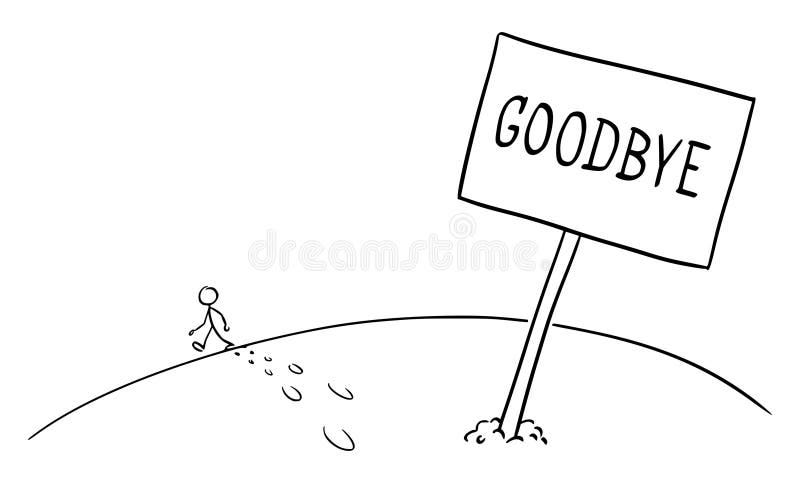
Similarly, the desire to improve ourselves — whether building a better physique, acquiring knowledge, or accumulating wealth — stems from dissatisfaction with our current circumstances.
Actions borne from this state of discontent can either be constructive (adopting a better diet, reading more, saving more) or destructive (developing eating disorders or body dysmorphia, corrupt officials looting public funds).
There is thus a delicate thin line walked in when acting upon our discontent — knowing when you have ‘enough’ in that season before embarking on new constructive activities based on the next phase of your discontent.
There is also the state of inaction — or pseudo-action — where no tangible steps are taken, and desires remain confined to the imagination. In such cases, the aspiration never evolves into action, remaining simply a longing unfulfilled.
The Cycle of Consumption
Our discontent has created a world where prosperity is one of the most sought-after commodities, coming packaged in different forms
Back in high school, before the major examinations, our administration would invite motivational speakers to encourage us to study hard and diligently.
They would tell us that success was our portion. That they could see doctors, engineers, and great statesmen amongst us. That we had this major hurdle which should we overcome, those realities would be actualized.
They would pretty much gas us up.

After these talks a serious aura would envelop the school — classrooms would be quiet, everyone walked with books in hand, and meals were taken in haste. But soon this energy would dissipate, and things would go back to normal.
This phenomenon also appears in our relationship with self-help literature. You have a self-help book stashed somewhere — a bestseller perhaps that you bought because of the transformative effect it has had on people’s lives. You decided that you also wanted a piece of the pie.
You read it, marked and highlighted the parts you found most profound, and even wrote them down. They uplifted your spirit.
They motivated you.
They showed you how much better your life could be.
Yet, after you are done, you find yourself back where you started, albeit with a head full of ideas.
Then you pick up another book. A different author, someone who went monk mode for 2 years and discovered the perfect hack to productivity.
You delve into it, consuming new ideas.
It becomes a cycle.
A cycle of consumerism, feeding off the motivations and affirmations in these books but never translating them into meaningful action.
While self-help has undeniable value, it has become industrialized due to the nature of our discontent and our need to act on it. Self-help offers a form of catharsis, a temporary relief from this state.
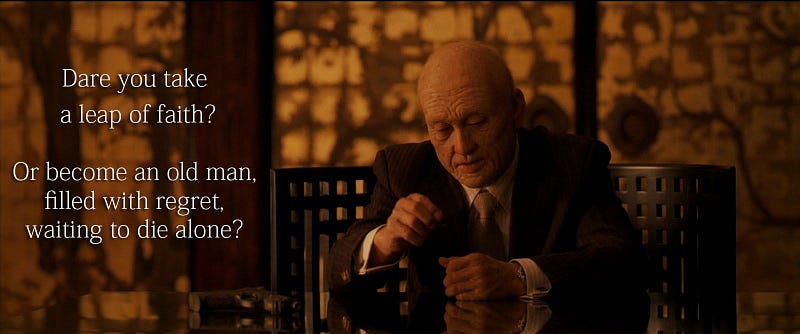
Many who create self-help content genuinely aim to help others, but some have recognized this pattern of human behavior and capitalized on it, churning endless variations of the same message. People eager for answers, continue to consume them.
But I digress.
The Illusion of Progress
Today this cycle of motivational consumerism is packaged in the form of quotes, aesthetic posts, and polished pictures. We like, interact with, and share this content when we come across it visualizing ourselves in these scenarios.
But the cycle is the same.
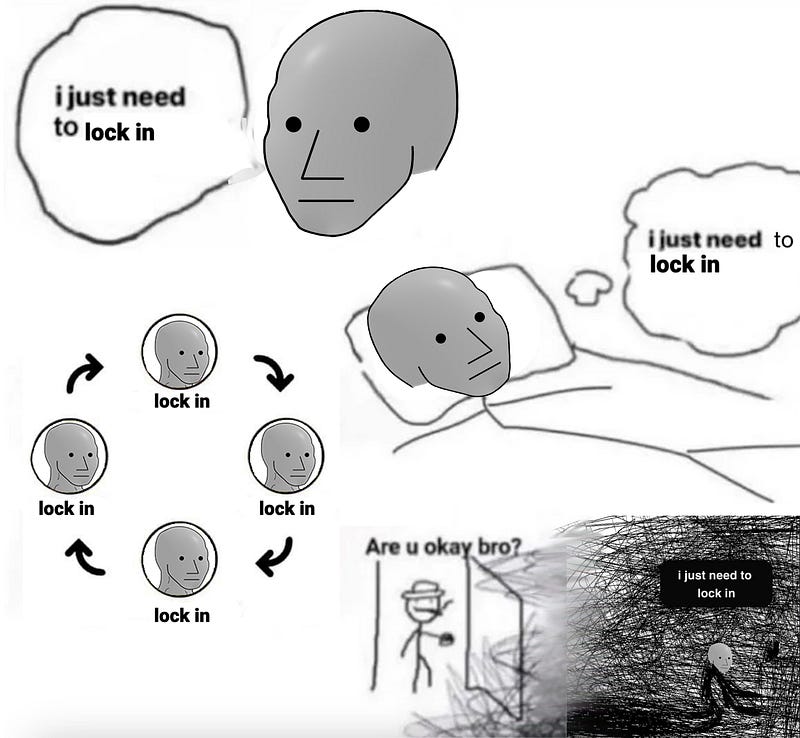
I believe these posts have value and we should use them to help us pin what we want to achieve. A goal is easier to pursue if we have a vision of where we want to go. But they shouldn’t substitute the work that needs to be done.
Living through the achievements of others can trap us in a loop of inaction, where we mistake consumption for progress.
In Beyond Good and Evil, Friedrich Nietzsche critiques those who adopt a passive approach to life merely observing from a safe distance.
Men whose lives are not an ‘action’ but a business, sit before the stage and observe strange creatures for whom life is no mere business… the strongest ideas and passions brought before those who are not capable of ideas and passions but only of intoxication!
He remarks that such folks spectate and experience life through others, celebrating their passions and achievements, rather than engaging and seeking their own.
A huge challenge is often moving beyond the consumption of inspiration and stepping into genuine engagement, leaving the hamster wheel behind.
And that takes action.
The Trenches
Starting a diet is tough.
Going to the gym for the first time can be intimidating.
Rejections suck.
Your nerves kicking in while you are giving a speech in public sucks.
Starting a business can be difficult.
The trenches are ugly and understandably so. You are trying to transcend and overcome yourself and your circumstances, a process that takes time, energy, effort, and a lot of failing.
It’s while you are in them that you realize becoming the person you visualized is going to take a lot more than motivation.
Motivation while valuable can become a crutch. It could deceive us into believing that with the right knowledge, techniques, or skills we’ll be able to act.
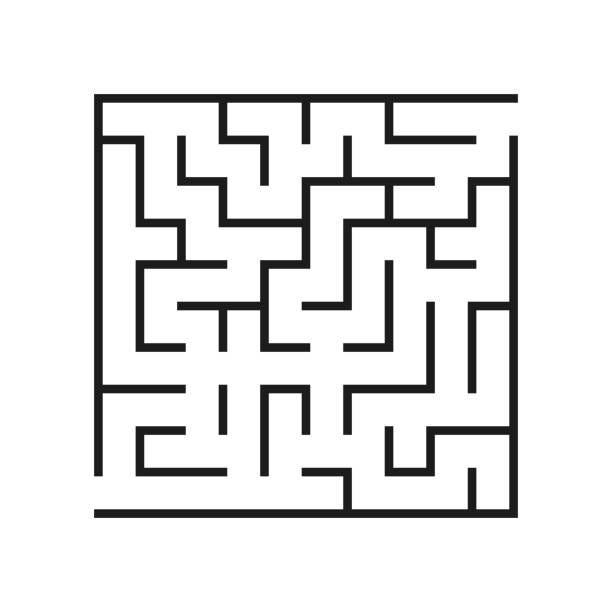
But this puts us in a labyrinth of ideas, where we are stuck in the euphoric high of consuming insights and celebrating others’ success stories while avoiding actual action.
As Nietzsche remarks in Schopenhauer as Educator:
No one can build you the bride on which you and only you must cross the river of life. There may be countless trails and bridges and demigods who would gladly carry you across; but only at the price of pawning and forgoing yourself. There is one path in the world that none can walk buy you. Where does it lead? Don’t ask, walk!
The essence of locking in is simple: just start.
You may not have all the answers.
You may not know the right steps.
But you will learn a lot more from experimenting and trying things out on your own rather than seeking the ‘right’ path.
Let the motivational posts and books be tools to support your journey — not the journey itself. After all, the people sharing these insights likely gained them by acting without a clear roadmap, relying on faith and grit.
The wisdom emerged from the experience.
Basically, such wisdom is hollow unless rediscovered in your terms.
You can’t shortcut this process, and if you do you would miss out on the essential character development needed to be and even transcend the reality you seek.